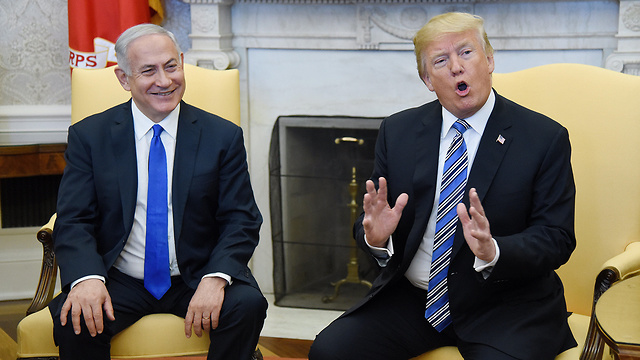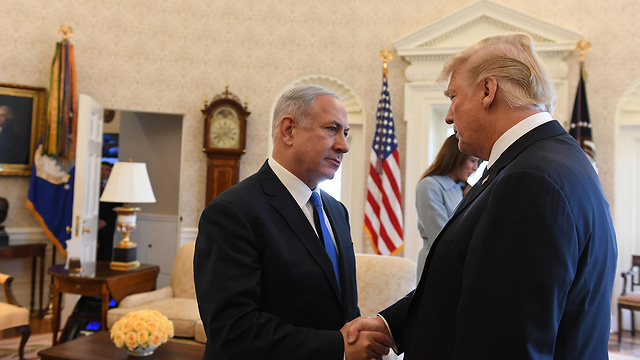Detailing approaches to sensitive and incendiary topics without pushing for any single approach, the new US peace plan for the Israel-Palestinian conflict aims to give the two sides freedom to pick and choose from its proposals, according to a New York Times report.
US President Donald Trump is expected to present his peace plan to resolve the Israeli-Palestinian conflict soon, The New York Times reported Monday, citing three Trump administration officials.
The White House, according to the Times, is still polishing the plan, seeking to find a formula that will ensure the American intiative is not dead on arrival. The Trump administration hopes that when the peace plan is finally put on the table, the pressure on the Palestinians to enter negotiations with Israel will increase.
According to the report, the delay in presenting the plan, which was written by Trump’s son-in-law and adviser Jared Kushner, US Ambassador to Israel David Friedman, and adviser on Middle East affairs Jason Greenblatt, stems from two reasons: The expected Palestinians opposition to the plan and the possibility of snap elections in Israel, which will make Prime Minister Benjamin Netanyahu wary of making any concessions out of fear of creating resentment among his voters on the Right.
Despite these challenges, the White House nevertheless decided to go ahead with the plan, although the exact date for its publication has yet to be determined.
One official quoted by the Times likened the plan to the Israeli navigation software Waze, as its purpose is helping both sides bypass obstacles on their way to the final destination—what Trump refers to as the “ultimate deal.”
Not expected to push for a two-state solution
It is unlikely Trump’s peace plan would present clear guidelines similar to the Saudi plan, which was adopted by the Arab League.
The plan is not expected to offer a two-state solution, but instead offer a blueprint for a two-state solution, should both sides decide on it as the best option. At the same time, the document will include appendices to solutions to controversial issues such as borders, security arrangements, Palestinian refugees and the status of Jerusalem.

Meanwhile, representatives of Arab states, which had previously pledged to help put pressure on the Palestinians in all matters related to negotiations with Israel, informed the White House that they would not be able to do so after Trump’s decision to recognize Jerusalem as Israel’s capital and move the American embassy there.
Since the controversial American declaration, the Palestinians have cut off contact with the Trump administration and have turned to another route: putting pressure on other countries—especially in Europe—to replace the United States as mediator in the peace talks with Israel.




A Comparison to WAZE is not the best choice….. I constantly, see reports of tourists, IDF, Israeli Jewish Citizens ending up in Arab towns and villages, who need tobe rescued, and who arrived there through following WAZE….